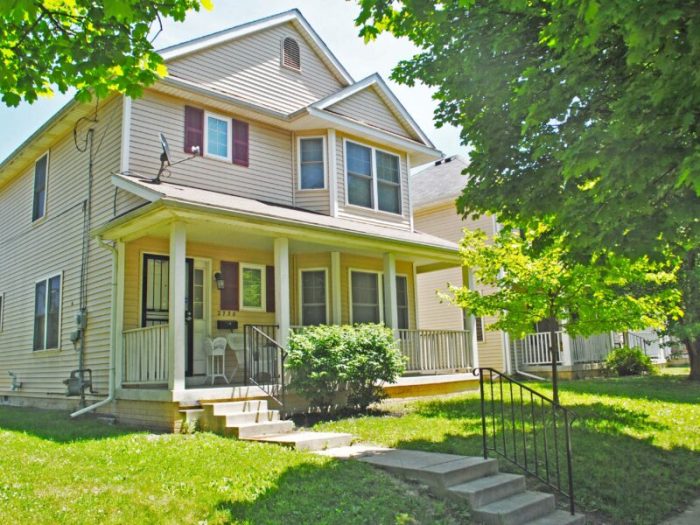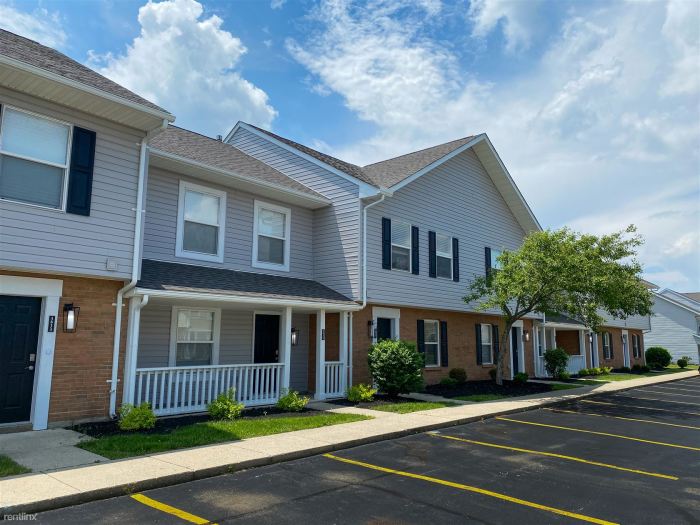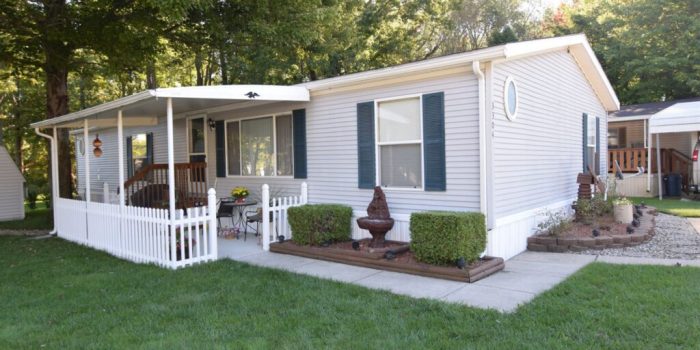Understanding the House in Rent by Owner Market
The “house in rent by owner” (or “by owner,” abbreviated as “byo”) market offers a distinct alternative to traditional rental properties managed by agencies. Understanding its characteristics, advantages, and disadvantages is crucial for both landlords and tenants. This section will explore the nuances of this market, including renter profiles, legal considerations, and the inherent differences compared to agency-managed rentals.
Characteristics of the House in Rent by Owner Market
The byo market is characterized by a more direct landlord-tenant relationship, often resulting in greater flexibility and potentially lower costs for renters. However, it also lacks the professional management and legal safeguards often provided by rental agencies. Landlords in this market are typically individual homeowners or small-scale property investors, managing their properties personally. This contrasts with agency-managed rentals, which involve professional property management companies handling tenant screening, lease agreements, maintenance, and other administrative tasks.
Typical Renter Profile Seeking House in Rent by Owner Properties
Renters seeking byo properties often prioritize direct communication with the landlord, potentially seeking more personalized arrangements or greater flexibility in lease terms. They may also be drawn to potentially lower rental costs or a desire for a more personal, less corporate rental experience. This profile frequently includes individuals or families seeking long-term rentals, those valuing a direct relationship with their landlord, and those potentially comfortable handling property maintenance issues more directly.
Advantages and Disadvantages of Renting Directly from an Owner
Renting directly from an owner presents both benefits and drawbacks. Advantages include potentially lower rental costs due to the absence of agency fees, greater flexibility in lease terms, and a more direct line of communication with the landlord for addressing concerns. Disadvantages may include a lack of professional property management support, potentially less rigorous tenant screening processes, and a greater responsibility for the tenant in handling repairs and maintenance issues.
Legal Considerations for Landlords and Tenants in House in Rent by Owner Situations
Both landlords and tenants should be aware of relevant local, state, and federal landlord-tenant laws. These laws govern lease agreements, security deposits, eviction processes, and tenant rights. Landlords must comply with fair housing laws and ensure their properties meet safety and habitability standards. Tenants should understand their rights and responsibilities, including proper notice periods for lease termination and procedures for addressing maintenance issues.
Consulting with legal professionals is recommended for both parties to ensure compliance and protect their interests.
Marketing and Advertising Strategies for House in Rent by Owner Listings
Effectively marketing a byo property requires a strategic approach that combines compelling visuals, detailed descriptions, and targeted advertising on appropriate platforms. This section Artikels a marketing plan, including budget considerations and examples of effective online platforms.
Marketing Plan for Attracting Potential Tenants
A successful marketing plan involves a multi-pronged approach. This might include:
- Professional Photography: High-quality images are essential.
- Compelling Listing Description: Highlight key features and benefits.
- Online Advertising: Utilize platforms like Zillow, Craigslist, and Facebook Marketplace.
- Networking: Leverage personal connections and local community groups.
Budget Breakdown (Example):
- Professional Photography: $200-$500
- Online Advertising: $50-$200 per month
- Signage (optional): $50-$100
Compelling Description for a House in Rent by Owner Listing
A compelling description should highlight key features, benefits, and the overall lifestyle the property offers. For example: “Charming 3-bedroom, 2-bathroom house in a quiet neighborhood. Features updated kitchen, spacious backyard, and convenient location near schools and parks. Available immediately. Contact [Contact Information] for a viewing.”
Effective Online Platforms for Advertising House in Rent by Owner Properties
Several online platforms cater to byo listings. The choice depends on your target audience and budget.
| Property Site | Features | Pros | Cons |
|---|---|---|---|
| Zillow | Wide reach, professional look | Large audience, established platform | Fees may apply, competition can be high |
| Craigslist | Free listings, local focus | Cost-effective, direct reach to local renters | Less professional appearance, potential for scams |
| Facebook Marketplace | Targeted advertising, community engagement | Can reach specific demographics, free or low-cost | Less structured than dedicated property sites |
| Nextdoor | Hyperlocal reach, community focus | Excellent for reaching neighbors, building trust | Limited reach outside immediate neighborhood |
Strategies for Using High-Quality Photographs, House in rent by owner
High-quality photographs are crucial for attracting potential tenants. Use natural lighting whenever possible, and avoid harsh shadows. Showcase the property’s best features from flattering angles, and stage rooms to create a welcoming and appealing atmosphere. Consider professional photography for optimal results.
Tenant Screening and Selection Process for House in Rent by Owner Properties
A thorough tenant screening process is essential to protect your investment and ensure a positive rental experience. This involves several steps to assess a potential tenant’s reliability and suitability.
Steps Involved in a Thorough Tenant Screening Process
A comprehensive screening process typically includes:
- Application Review: Assess completeness and accuracy of information provided.
- Background Check: Verify identity and check for criminal history.
- Credit Report: Evaluate financial responsibility and creditworthiness.
- Rental History Verification: Contact previous landlords to assess payment history and tenancy behavior.
- References: Contact personal and professional references.
- Income Verification: Confirm sufficient income to afford rent.
Importance of Background Checks, Credit Reports, and Rental History Verification
These checks provide crucial insights into a potential tenant’s reliability and ability to meet their financial obligations. A negative history can indicate potential risks, such as late rent payments, property damage, or evictions. Thorough checks mitigate these risks.
Effective Communication with Potential Tenants

Source: vmc.org
Maintain clear and professional communication throughout the screening process. Provide timely updates, answer questions thoroughly, and explain the reasons for any decisions made. This fosters trust and ensures a positive experience, even for unsuccessful applicants.
Methods for Collecting Security Deposits and Managing Rental Payments
Several methods exist for handling security deposits and rental payments. Options include cashier’s checks, money orders, online payment platforms (e.g., Venmo, Zelle), or dedicated rent payment services. Ensure compliance with local laws regarding security deposit handling and interest payments.
Finding a house for rent by owner can be a rewarding experience, offering direct communication and potentially more flexible terms. However, if you qualify, consider exploring subsidized options like those listed on the section 8 houses for rent website; it might broaden your search significantly. Ultimately, the best approach for finding your perfect rental depends on your individual needs and financial situation, so weigh your options carefully before committing to a lease.
Lease Agreements and Legal Protections for House in Rent by Owner Situations
A well-drafted lease agreement is essential for protecting both the landlord and the tenant. This document Artikels the terms of the rental agreement, including responsibilities, payment schedules, and dispute resolution procedures. Understanding local landlord-tenant laws is crucial for creating a legally sound and fair agreement.
Sample Lease Agreement Clauses
A sample lease agreement should include clauses addressing:
- Rental Amount and Payment Schedule: Clearly state the monthly rent and due date.
- Lease Term: Specify the start and end dates of the lease.
- Security Deposit: Detail the amount and conditions for its return.
- Utilities: Clarify which utilities are the tenant’s responsibility.
- Maintenance and Repairs: Artikel responsibilities for repairs and maintenance.
- Late Fees: Specify penalties for late rent payments.
- Pet Policy: Address pet ownership, if allowed.
- Eviction Procedures: Artikel the process for eviction in case of lease violations.
Common Legal Pitfalls to Avoid

Source: amazonaws.com
Common pitfalls include failing to comply with fair housing laws, neglecting to properly screen tenants, and drafting ambiguous or incomplete lease agreements. Seeking legal advice is recommended to avoid potential disputes and ensure compliance with local regulations.
Understanding Local Landlord-Tenant Laws and Regulations
Familiarity with local landlord-tenant laws is paramount. These laws govern various aspects of the rental relationship, including lease terms, security deposits, eviction procedures, and tenant rights. Ignorance of these laws can lead to costly legal battles.
Finding the perfect house in rent by owner can be a challenge, but focusing your search helps. If you need ample space, consider a larger property; for instance, check out this 4 bedroom house for rent listing – it might be exactly what you’re looking for. Ultimately, the ideal house in rent by owner will depend on your specific needs and preferences.
Clauses Protecting Landlord and Tenant
Several clauses can protect both parties. Examples include:
- A clause requiring timely notification of needed repairs.
- A clause specifying the process for returning the security deposit.
- A clause outlining the consequences of lease violations.
- A clause addressing the handling of property damage.
Managing a House in Rent by Owner Property Effectively

Source: bfmilitary.com
Effective property management is crucial for maintaining a positive landlord-tenant relationship and preserving the value of your investment. This involves proactive maintenance, fair dispute resolution, and efficient handling of lease renewals and terminations.
Maintenance and Repair Plan
Develop a proactive maintenance plan addressing routine upkeep and addressing tenant requests promptly. This includes regular inspections, preventative maintenance, and a system for handling repairs efficiently.
Addressing Tenant Complaints and Resolving Disputes
Establish a clear process for addressing tenant complaints and resolving disputes fairly. Respond promptly to concerns, and strive to find mutually agreeable solutions. Consider mediation if necessary.
Handling Lease Renewals and Terminations
Clearly Artikel the procedures for lease renewals and terminations in the lease agreement. Provide adequate notice, and follow legal requirements for both lease renewals and terminations.
Resources for Landlords Renting Houses by Owner
Several resources can assist landlords in managing their byo properties effectively.
| Resource Type | Resource Name (Example) | Contact Information (Example) | Description |
|---|---|---|---|
| Legal Aid | Local Bar Association | [Website/Phone Number] | Provides legal advice and representation |
| Property Management Advice | Online Forums/Websites | [Website Addresses] | Offers tips and best practices |
| Handyman Services | Local Handyman Companies | [Phone Numbers/Websites] | Provides repair and maintenance services |
| Insurance | Insurance Provider | [Contact Information] | Provides landlord insurance coverage |
FAQ Explained: House In Rent By Owner
What’s the best way to find reliable tenants?
Thorough tenant screening is key! Check credit reports, conduct background checks, and verify rental history. Don’t hesitate to ask for references and conduct in-person interviews.
How much should I charge for rent?
Research comparable rentals in your area to determine a competitive yet fair market rate. Consider factors like property size, amenities, and location.
What if a tenant damages the property?
Have a comprehensive lease agreement outlining tenant responsibilities and consequences for damage. Collect a security deposit to cover repairs.
What are my legal obligations as a landlord?
Familiarize yourself with local landlord-tenant laws. These laws vary by location and dictate your responsibilities regarding repairs, notice periods, and eviction procedures.





